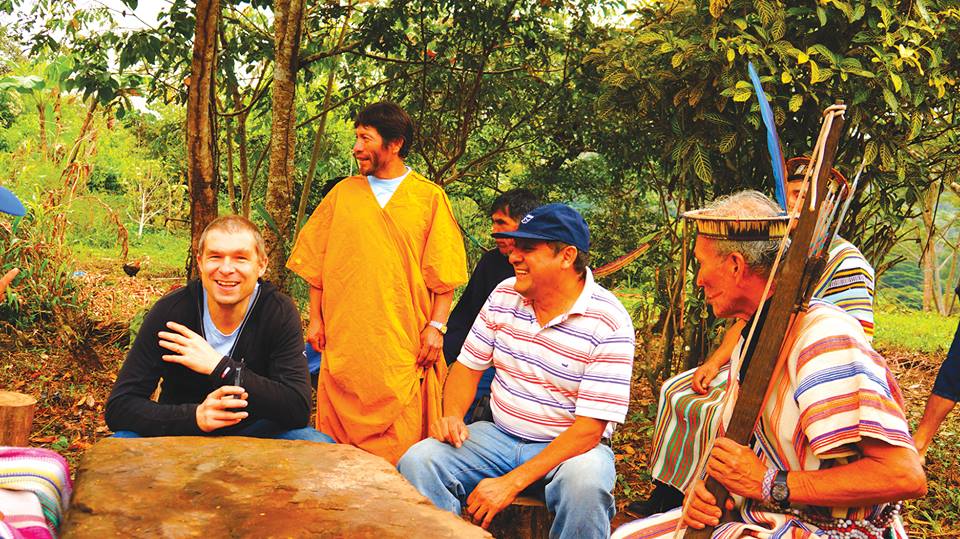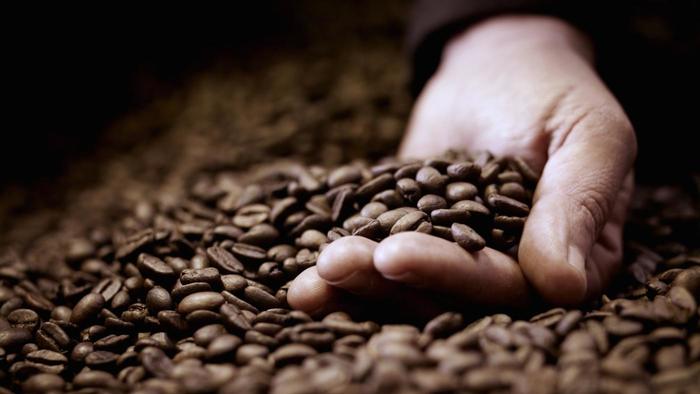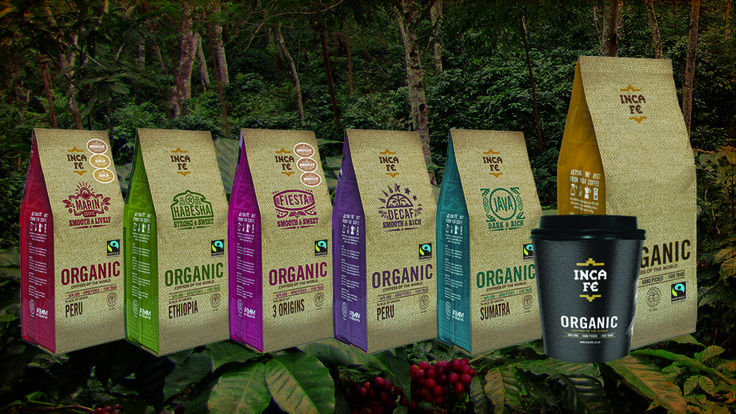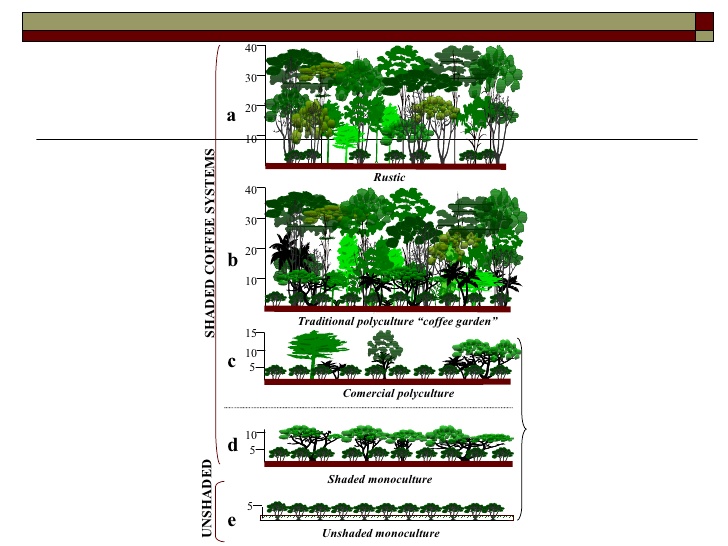In the first in a series of articles of New Zealanders championing organic farming, Pure Advantage talks to New Plymouth based IncaFe founding director Joop Verbeek about the importance of growing organic coffee the natural way.
Joop believes that “for nature to work best we should respect the soil, its water and all that lives in it. For the land to produce best we should respect the hands that care for it.”Joop Verbeek (IncaFe Founding Director)
New Zealand has some of the highest standards and consumption rates for top notch coffee worldwide. New Zealand’s per capita consumption ranks among the top 20 in the world, at 0.94 cups per day.Statista.com.
New Zealanders pride themselves on serving authentic, strong and flavorsome coffee. Undisputedly there is huge variety in coffee worldwide (taste, strength, price) but the most important difference between coffee variations occurs prior to consumption.
The difference between organic and conventional coffee.
Since coffee is the second most widely traded commodity worldwide, the process in which it is created is vitally important.http://www.investorguide.com/article/11836/what-are-the-most-commonly-traded-commodities-igu/
Conventional coffee is one of the heaviest sprayed crops with almost no regulations controlling the use of chemicals. “It’s steeped in synthetic fertilizers, pesticides, herbicides, fungicides, and insecticides.”
Decaffeinated coffee lovers will be shocked to learn that producers often use methyl chloride to decaffeinate their beans, a compound listed as a possible carcinogen by the National Cancer Institute.http://www.foxnews.com/leisure/2014/08/25/truth-about-decaf-coffee/ Chemicals used in production contaminate local waterways, and large-scale deforestation destroys the natural habitat of endangered species. Consequently, the wild and diverse ecosystem of flora and fauna is negatively affected. Lack of vegetation and tree cover results in excess fertilizer and pesticide run-off, which further pollutes local water supplies.
“Coffee is often grown in sensitive tropical and subtropical mountainous areas with high seasonal rainfalls. The problems with soil erosion and concentration of chemicals due to run off in waterways or groundwater are enormous. Issues include damage to drinking water sources, damage to fish populations, poisoning of locally grown food and soil exhaustion. Organic agriculture requires companion plantings and trees that can provide food and materials.”Joop Verbeek (IncaFe Founding Director)
Coffee production generates large quantities of Greenhouse Gases (GHGs). But surprisingly the majority of the GHGs produced are on the consumption side. A 2012 study (PDF) that followed coffee from Costa Rica to Europe found that 53 percent of GHGs produced occur on the roaster side, in cafes, through energy consumption and the production of waste in the form of to-go materials.https://www.greenbiz.com/article/10-most-sustainable-coffee-businesses-united-states?utm_source=newsletter&utm_medium=email&utm_term=newsletter-type-greenbuzz-daily&utm_content=2016-11-21&utm_campaign=newsletter-type-greenbuzz-daily-106452&mkt_tok=eyJpIjoiWVdFMlpXTTVPR0psWTJWaSIsInQiOiJab0xLbGRCOUV5TlZrSTdGZzU1K21YSkswRmRxUTFrNW9HQW5FMXdwc2h5ZGcrYVRhMnJsQ
“It replicates a global issue related to climate change,” Hanna Neuschwander of World Coffee Research told Civil Eats.
“Coffee drinkers generate the most CO2, and coffee farmers pay the highest price for it.”https://www.greenbiz.com/article/10-most-sustainable-coffee-businesses-united-states?utm_source=newsletter&utm_medium=email&utm_term=newsletter-type-greenbuzz-daily&utm_content=2016-11-21&utm_campaign=newsletter-type-greenbuzz-daily-106452&mkt_tok=eyJpIjoiWVdFMlpXTTVPR0psWTJWaSIsInQiOiJab0xLbGRCOUV5TlZrSTdGZzU1K21YSkswRmRxUTFrNW9HQW5FMXdwc2h5ZGcrYVRhMnJsQ
Coffee production also suffers from the effects of climate change. Increasing temperatures and shifting weather patterns could decrease coffee lands by as much as 50 percent over the next three decades, says Conservation International.https://www.theguardian.com/environment/2016/jan/18/denmark-broke-world-record-for-wind-power-in-2015
The coffee you choose to consume could go a long way to preventing climate change and ecosystem destruction.
IncaFe supports coffee grown within the shade of lush forests in Peru, providing a home for wild plants and animals, sustaining soil fertility, and keeping unique regional ecosystems alive. “The area is truly organic and has its own microclimate which promotes consistency of quality.”Joop Verbeek (IncaFe Founding Director) These forested farms are a better long-term investment for coffee farmers because the landscape is more resilient to shifting climate patterns. Practices like crop rotation, mulching, and composting maximize carbon fixation.
For director, Joop Verbeek, “Business is very much founded on our passion for the environment and sustainability, and our political and social beliefs.”
When asked about the future of coffee, Joop responded he’s “afraid that Genetically Modified (GM) coffee will really take off in places that are already exposed to the detriments of climate change.”
Although, there’s no clear scientific research of the harmful effects of GM crops, Joop compared the scenario to the lengthy battle scientists had to endure to prove the link between smoking and lung cancer. Similarly, it took NZ twenty years to ban DDT. Joop believes that “glyphosate (herbicide) will fall into this category ten years or so from now.”
However, Joop remains hopeful that more coffee growing areas will be reforested on a larger scale. Forested areas encourage companion crops, increase biodiversity, and create labour, because forested coffee plantations are hard to harvest mechanically.
Organic agriculture and Fairtrade practices increase economic prosperity for small communities by ensuring growers are paid a fair wage. CEO of Fairtrade New Zealand, Molly Harris Olson said, “Fairtrade farmers and their communities are benefitting from a fair price for their coffee as well as additional income from the carbon credits.” They also receive a bonus sum of money for investment in social, economic and environmental development in their community, such as educational and medical facilities. http://fairtrade.com.au/~/media/fairtrade%20australasia/files/resources%20-%20general/fairtrade%20coffee%20fact%20sheet-%20sept%202015_au.pdf

Joop visits the small communities that grow IncaFe coffee and works closely with suppliers to ensure their commitment to being organic and Fairtrade.
The entire coffee supply chain is organic and carbon neutral certified from farm to shelf! IncaFe achieves this through purchasing carbon credits. Credits are often created by climate projects in Fairtrade farming communities, such as reforestation projects in Peru.
IncaFe has achieved carboNZero certification for their overall business. This programme encourages sustainable practices and allows the company to offset emissions by purchasing carbon credits in sustainable energy projects in New Zealand. Joop’s favourite projects are Riparian Planting schemes. “They’re a double whammy”Joop Verbeek (IncaFe Founding Director) – protecting NZ’s waterways and increasing reforestation. Last year IncaFe opted to purchase credits from Rangitoto station forestry project.
IncaFe achieves economic benefits, whilst reducing emissions. This year, IncaFe is “isolating their factory (less cooling required), replacing all lighting with LED bulbs, and investing in a more efficient roaster.”1
Joop decided to pursue certification because “making unjust or misleading claims is [commonplace] in NZ and goes almost entirely unsanctioned. The more we all promote these standards by being certified, the more of a success they become.” Certification can be seen as a competitive advantage for kiwi businesses.
When asked about the future of sustainable business, Joop replied that “Direct costs for offsetting and reducing GHG emissions are relatively small…and therefore, (certification) should be compulsive for all businesses and governed by the IRD so that the administration costs are relatively low.”
Organic is the fastest growing sector of the food industry.https://www.ota.com/resources/market-analysis Consumers who vote with their wallet by purchasing organic food send a message of support for sustainable practices.
Countdown recently partnered with Fairtrade Australia & New Zealand to launch a climate neutral coffee sold under their Macro Organic range. James Walker, General Manager of Corporate Affairs for Countdown said “Demand for certified products continues to increase and this launch showcases our commitment to providing ethical and sustainable choices to our customers. The range is not only quality Arabica coffee, but it is also organic, Fairtrade certified and Climate Neutral.”
“What makes Macro Fairtrade Climate Neutral Coffee truly unique is that the carbon compensation also takes place in the Fairtrade coffee supply chain.” – Walker
Innovation in the coffee industry is happening at the source. “By choosing Fairtrade products, consumers are supporting a global system which is empowering and enabling 1.65 million farmers in 74 countries to adapt to climate change.” – CEO of Fairtrade New Zealand, Molly Harris Olson
Various studies show consumers are increasingly willing to pay more for a certified/sustainable product. “We work with coffee that is relatively expensive, but we work efficiently so that we can charge what we think are fair and competitive prices. (Costs) are passed on but reflected in consistently high quality.”1 Despite being certified for eight years, IncaFe has only just begun to realize the value of marketing their carboNZero certification to conscious consumers.
A new survey by consumer satisfaction company Canstar Blue has shown that more than half of Kiwis (54%) care about the ethical and environmental impacts of coffee. And of the age groups surveyed, it’s the Generation Ys (56%) who care the most about the impacts of coffee.
“I think we’re seeing a shift in consciousness globally towards wanting stronger relationships with people and with the planet. It’s about giving other cultures an authentic connection to the amazing place where their food comes from.” – Brendan Hoare, Buy Pure NZ
Buy Pure NZ helps New Zealand sustainable food companies to expand overseas, portraying that it’s possible to develop successful businesses that protect rather than endanger the natural environment. Buy Pure NZ validates businesses and ensures that they are in operation for the long term.
Countries all around the world are taking leadership positions in the shift toward green growth. China has rapidly invested in renewable energy – to reverse air pollution. In 2015, Denmark produced 42% of its electricity from wind turbines.https://www.theguardian.com/environment/2016/jan/18/denmark-broke-world-record-for-wind-power-in-2015 Sweden has promised to become the first fossil fuel nation. Its solar energy budget alone has increased by 800%!
Yet, no country is yet to lead the way with solely organic agriculture.
NZ could be the first.
Imagine a country with only organic agriculture. This statement would back up our fast eroding image as a clean, green and safe food supplier to the world.
“It’s crucial that we match the rhetoric with the reality, or we’ll lose market share. It all comes back to making our 100% Pure New Zealand brand genuinely meaningful,” says Brendan Hoare.
Consumers are increasingly focusing on environmental performance indicators when making purchasing decisions. IncaFe were the first fully certified Fairtrade organic (BioGro) and carboNZero certified roaster in New Zealand, but despite all the accreditations, the coffee has also won several awards for its taste quality. Creating demand for organic product helps support sustainable practices and secures healthy ecosystems and sustainable communities for the future. “I like coffee because it gives me the illusion that I might be awake.” Be wide awake and choose organic.
“I don’t hope people drink more coffee. I hope they drink better coffee.” – Joop Verbeek






Leave a comment